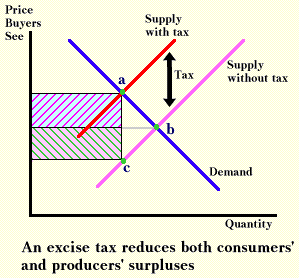Consider: lots of rules, regulations
ex: Mayor Menino banned Walmart from entering Boston;
Also banned minute care from CVS to ppl w/out health care insurance. =/
example example example:
Who is "Victor Schrengoss"??
-> made the riding mower, common material in bikes, revolutionized the coffin industry, the truck industry
He's a classic entrepreneur! But we don't know him.
Ghandi: permanently starved 100s of millions of Indians; he was against trading, reliance on others; forced villages to be self-sufficient and it led to their demise
Why don't we know Norman Borlaug, the "father of the Green Revolution"
Common Sentiments: Immoral to make $ off the sick, how dare we exploit them
-->what does it mean to make too much money off someone's misfortune
Consider: clothing stores make $ off our nakedness
schools make $ off our ignorance, locksmiths make $ off our fear
17-20% of GDP goes to health care?
insurance very expensive--> if eliminated health insurance, would it change anything?
ex: 1999, cost Rizzo $1200 for hospital visit; saved his life
-people who didn't even know him put in a lot of time/labor
-yes, they did make $ off of him, even if had different political/relig views, still assisted
-->can't just believe in work, need to get paid
- $ plays incentive to make cures; would you rather they didn't? when you want something,you pay more
- why not compensate those who saved your life
What is an entrepreneur & what should they be cognitive of?
-To start a business, understand your costs
Factors of Production
1) Labor:
explicit: wages implicit: forgone wages
2) Land
explicit: rent implicit: rent
Opportunity costs, use land to run college, give up value to rent to other people (farm? casino?)
3) Capital
explicit: rent implicit: forgone rent
Oppor. costs: rent equipment (explicit), own equipment (implicit)
-As an entrepreneur, consider the sum of implicit and explicit costs
Profitability: rental rate + appreciation rate - interest costs
What are some benefits of buying?
Isn't it better to keep your money?
Potential benefits of buying:
Forgone rent: annual rental payment / price of good
Lease: 1 yr --> $12,000 / yr
Buy: $32,000
==> 12,000 / 32,000 = 37.5% is amount saved by buying
What is Not Shown?
-Maintenance; clean, fix, replace, broken costs
-Approx 4% of price --> pay for maintenance
ex: Given $100 mill for new building, but should raise $200 mill to cover maint. costs
-reason our tuition always goes up,
Own asset: something of value
-expectation of what you could sell it for next year
ex: Suppose sell car next year at $24,000
(Annual Rent / Price of good) / (Change of asset price / Price)
-->(2,000 / 32,000) + (-8,000 / 32,000)
37.5% - 25% - 10%
r = 10% , interest rate
cost of buying, 37.5 - 25 - 10 = 2.5%
Absolutely should buy the car, 2.5% is how much rich each year from having owned the car rather than renting it
Even if pay cash, still pay interest
-->opportunity costs forgone




